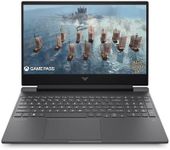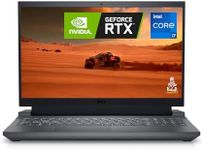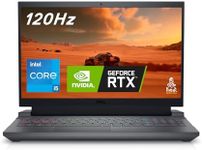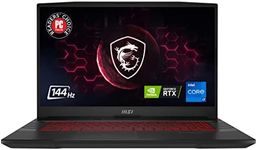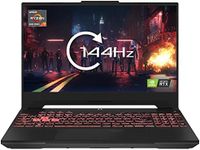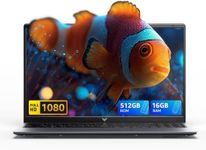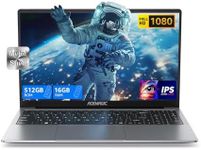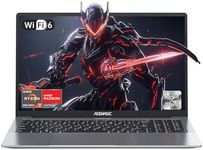Buying Guide for the Best Budget Gaming Laptops
When choosing a budget gaming laptop, it's important to balance performance with cost. Gaming laptops are designed to handle demanding tasks, so you'll want to focus on key specifications that affect gaming performance. Consider what types of games you play and how you plan to use the laptop. This will help you prioritize which specs are most important for your needs. Remember, a budget gaming laptop won't have the highest-end components, but you can still find a machine that offers a good gaming experience by focusing on the right features.Graphics Card (GPU)The graphics card, or GPU, is crucial for gaming as it handles rendering images, animations, and video. In budget gaming laptops, you'll typically find entry-level to mid-range GPUs. These are sufficient for playing most games at medium settings. If you play less demanding games or older titles, an entry-level GPU will suffice. For more modern or graphically intense games, aim for a mid-range GPU to ensure smoother gameplay. Consider your gaming preferences to decide which level of GPU performance you need.
Processor (CPU)The processor, or CPU, is the brain of your laptop and affects overall performance, including gaming. In budget gaming laptops, you'll find CPUs ranging from lower-end to mid-range. A quad-core processor is generally a good starting point for gaming, providing enough power for most games. If you multitask or play CPU-intensive games, consider a higher-end CPU within the budget range. Your choice should depend on whether you prioritize gaming alone or plan to use the laptop for other demanding tasks as well.
RAMRAM, or memory, is important for multitasking and ensuring smooth gameplay. For budget gaming laptops, 8GB of RAM is typically the minimum you should consider, as it allows for decent performance in most games. If you play more demanding games or run multiple applications simultaneously, 16GB of RAM is preferable. Consider how you use your laptop beyond gaming to determine the right amount of RAM for your needs.
StorageStorage affects how much data you can keep on your laptop and how quickly it can access that data. Budget gaming laptops often come with either a Hard Disk Drive (HDD) or a Solid State Drive (SSD). An SSD is faster and improves load times, which is beneficial for gaming. If you can, opt for a laptop with an SSD, even if it's smaller, as you can always use external storage for additional space. Consider the size of your game library and whether you need quick access to your files when choosing storage options.
DisplayThe display is important for your gaming experience, affecting how games look and feel. In budget gaming laptops, you'll typically find Full HD (1080p) displays, which are sufficient for most gamers. Consider the refresh rate as well; a higher refresh rate (like 120Hz or 144Hz) can make games look smoother, which is beneficial for fast-paced games. Think about the types of games you play and whether you value visual quality or performance more when choosing a display.
Battery LifeBattery life is often a trade-off in gaming laptops, as powerful components consume more power. In budget gaming laptops, battery life can vary, but it's generally shorter than non-gaming laptops. If you plan to game on the go, look for a laptop with decent battery life, though keep in mind that gaming will drain the battery faster. If you mostly game at home, battery life may be less of a concern. Consider your gaming habits and where you'll use the laptop most often when evaluating battery life.
Build Quality and DesignBuild quality and design affect the durability and aesthetics of your laptop. Budget gaming laptops may use more plastic in their construction, but you can still find models with sturdy builds. Consider the laptop's weight and portability if you plan to carry it around. Design features like keyboard backlighting can enhance your gaming experience. Think about how important these aspects are to you and how they fit into your lifestyle when choosing a laptop.
